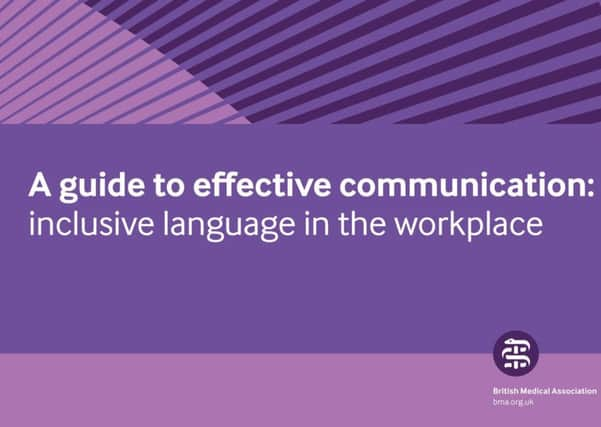Opinion: Have you ever seen a pregnant man?


I never thought, for example, I would be nodding in agreement with Catholic archbishops and Conservative backwoodsmen, yet here I am.
The cause of this apparent reconciliation is last year’s 14-page document entitled A Guide to Effective Communication: Inclusive Language in the Workplace. This offers advice on language usage from the British Medical Association.
Advertisement
Hide AdAdvertisement
Hide AdDesigned to help with avoiding offence, it suggests medical professionals should eschew presumptuous expressions such as “pregnant women” and substitute instead “pregnant people”. The advice contains the astonishing sentence, “A large majority of people that have been pregnant or have given birth identify as women.”
Did I get that right … a large majority?
Now I know that science teaches us that we should entertain doubt as a necessary prerequisite to understanding, but I would have thought ‘pregnant’ and ‘women’ is about as synonymous as finding words like ‘the sun’ followed by ‘rise tomorrow’ in the same sentence – not certain, but close to it.
I do remember an advertising campaign of a few years ago for The Family Planning Association showing a man with a rounded belly. I had thought that was some ad-man’s shock tactic, to be consigned to the dustbin where I keep the ‘Shake’n Vac’ jingle. Apparently not.
This is part of a wider movement that has the apparently laudable aim of reducing our exposure to anything that might be considered offensive. Just how many pregnant men are there who would be offended by the gender stereotyping of ‘pregnant woman’?
Advertisement
Hide AdAdvertisement
Hide AdWhat was once a respectable movement to rid speech of contemptible racial slurs has developed into a soggy blanket that threatens to limit thought. This is all being done in the name of a negative – not ‘giving offence’
This is also the direction in which the ‘safe spaces’ movement is heading in our universities. All it takes to generate a campus ban (or to make the space ‘safe’) is that some group may find a speaker’s views offensive and their invitation is withdrawn. Perhaps I should adopt the jargon here, they are ‘disinvited’ .
The problem is, that opposing opinions are part of the logic of argument, and through argument we grow and develop. The casualty of all this will inevitably be our capacity to think and our freedom of expression.